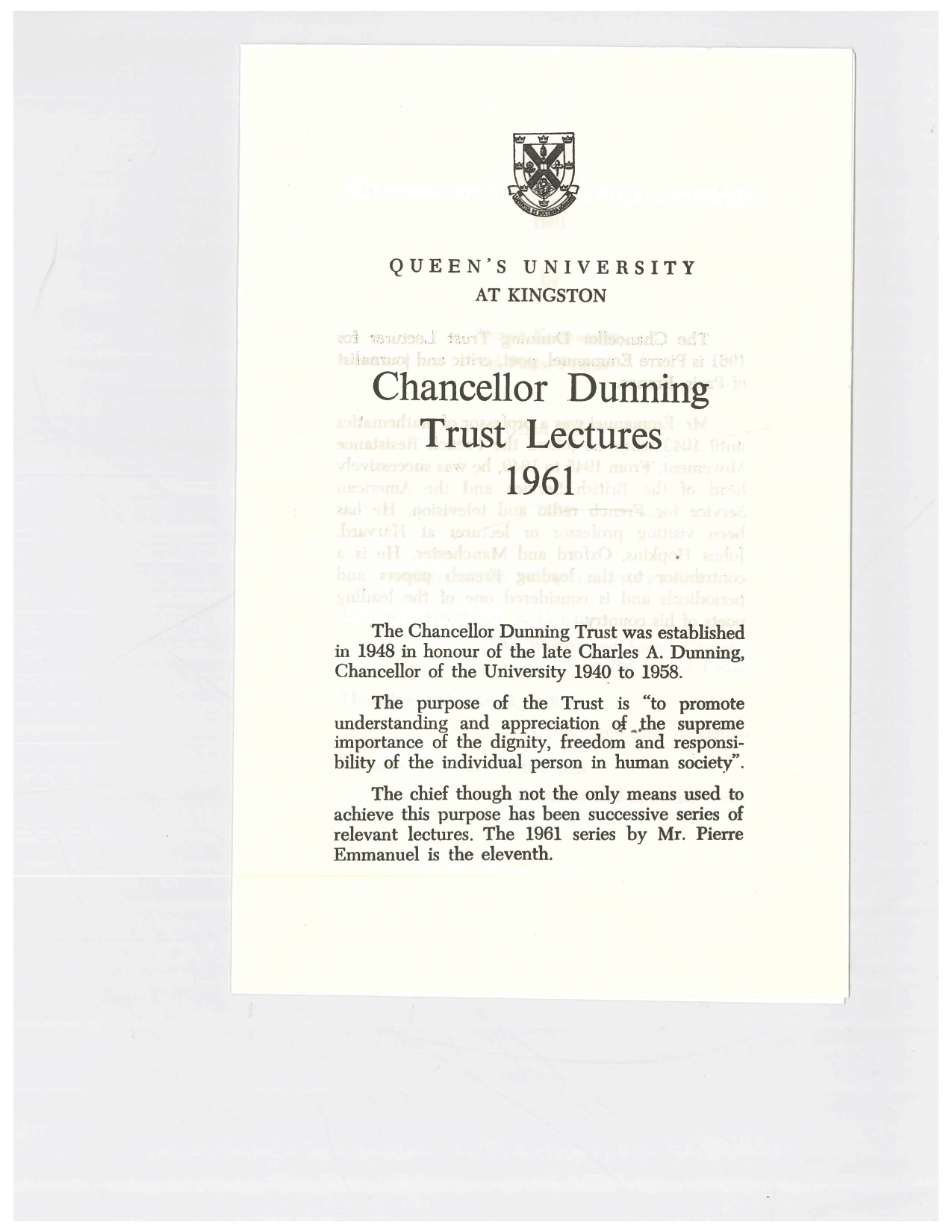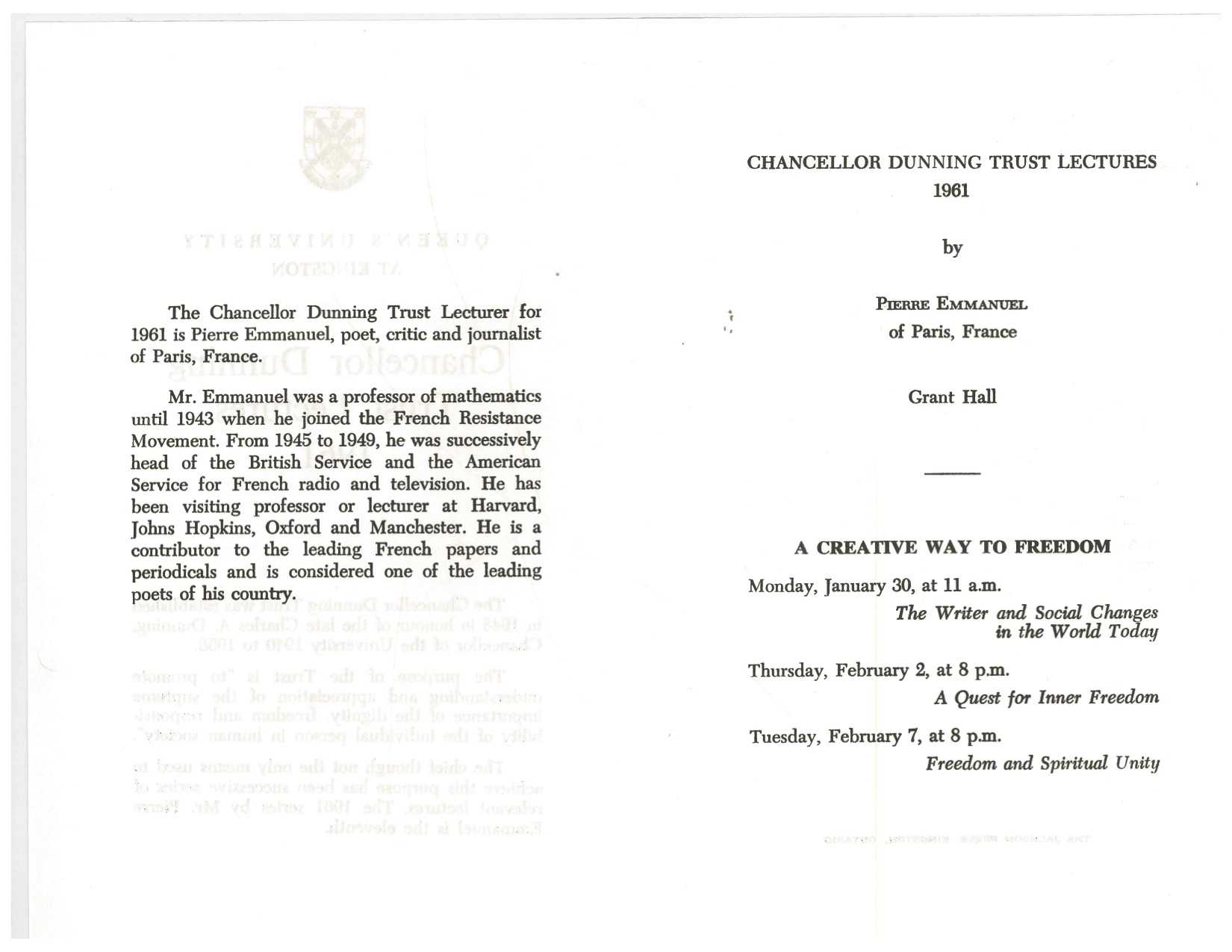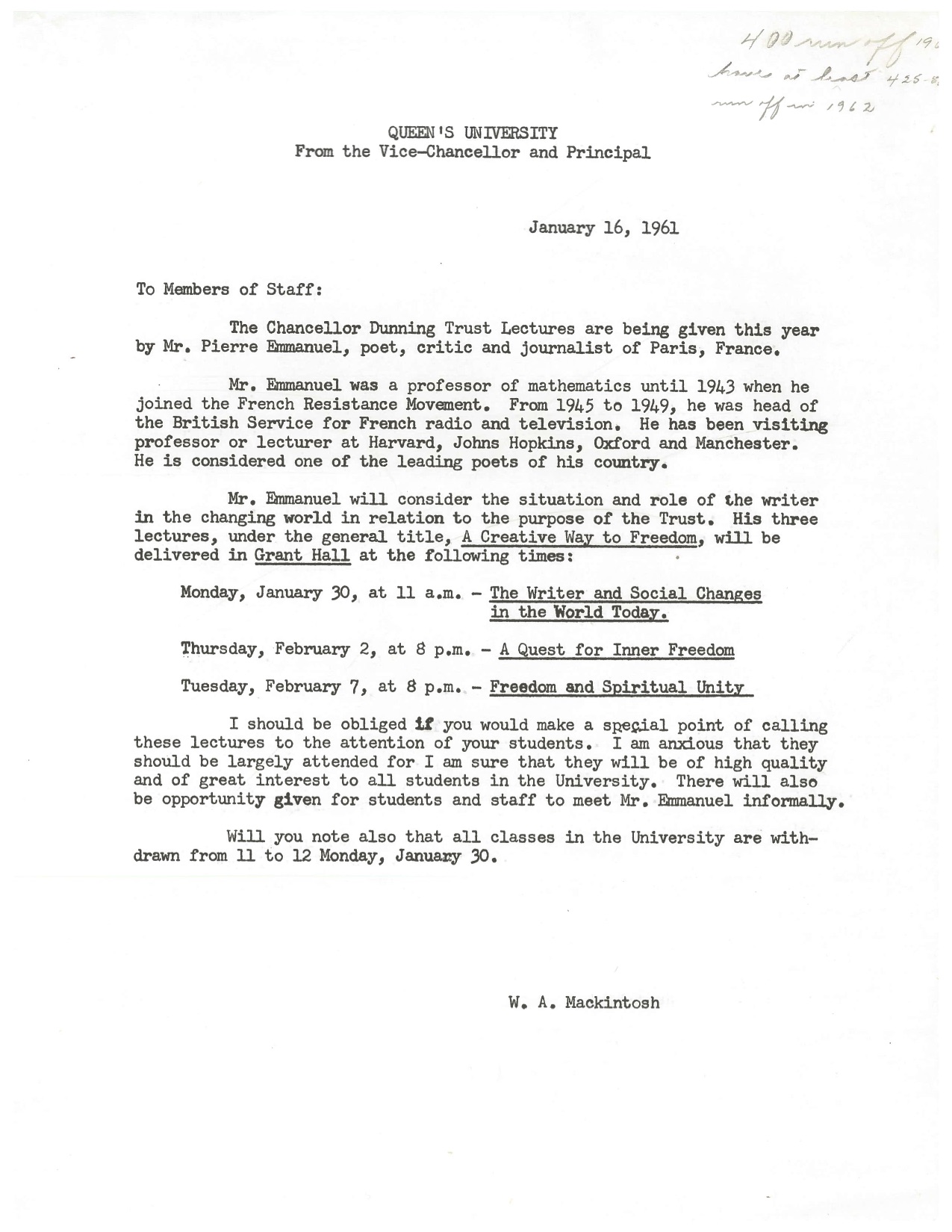Pierre Emmanuel was a French poet, critic, and journalist. Pierre Emmanuel name was a pseudonym and his real name was Noël Mathieu. He was a professor of mathematics until 1943, when he joined the French resistance movement to the Nazi occupation and the Vichy regime. From 1945 to 1949, he was head of the British Service and then the American Service for French radio and television. He was a visiting professor or lecturer at Harvard, Johns Hopkins, Oxford, and Manchester. He published collections of poems including Elegies (1940) and Freedom Guides Our Steps (1945), as well as several short stories. Pierre Emmanuel was the President of the International PEN Club from 1969 to 1971. Emmanuel’s poetry and journalism was recognized by his election to the Académie française in 1968 and numerous literary prizes including Grand Prix de la Poésie Française in 1968. He was awarded honorary degrees by Oxford, the University of Neuchatel, the University of Pennsylvania, and the University of Montreal. He died in 1984. At the time, he was one of the most significant writers in France.
Emmanuel gave three lectures: The Writer and Social Changes in the World Today, A Quest for Inner Freedom, & Freedom and Spiritual Unity. In his lectures, he discussed the situation and role of the writer in the changing world in relation to freedom. In his first lecture, he suggested two types of freedom: a determined freedom, in which man reaches his full stature, and a creative freedom, in which man finds himself or outgrows himself. Freedom, in his view, was not something that could be clear defined but was experienced in the process of living. It was humanity’s ultimate goal. His second lecture built upon this, addressing what he saw as an inner spiritual freedom and its relation to artists. Inner freedom, he argued, did not just mean letting go of self-control, but rather self-realization: finding one’s true self. In making this claim, he pushed back against the desire of many youth to rebel against conformity, only to establish a new form of conformity. Poetry, he argued in the third lecture, was the experience of freedom and the freest kind of language, and offered a way forward. In an age in which loneliness reigned supreme because of an inability to communicate and relate to one another, the task of poetry was to overcome this.
CFRC broadcasted the lectures. He did an exclusive interview with the Queen’s Journal, where he sketched his WWII activities, including forging identity cards and hiding Jews, and discussed Algeria.
Listen to an excerpt of Emmanuel’s lectures below.


